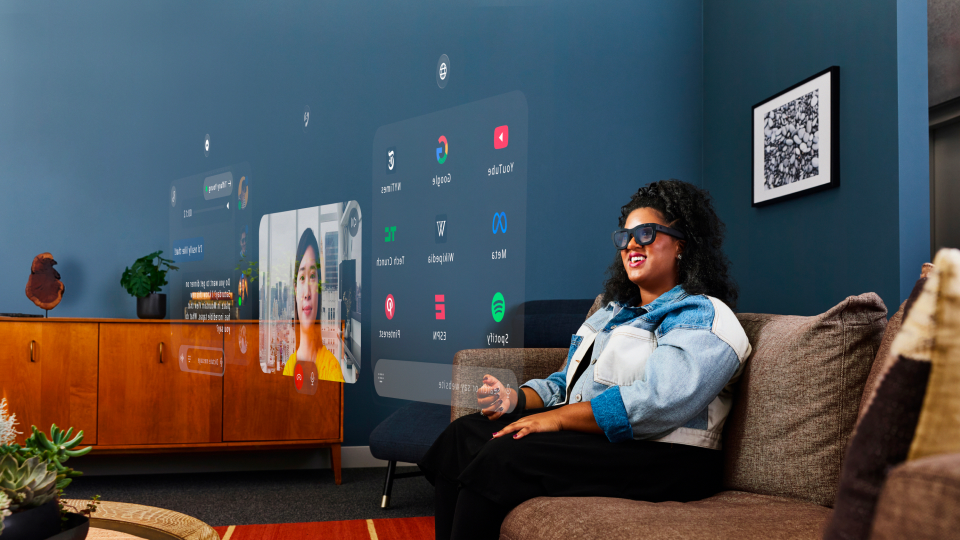Meta’s Vision for Smart Glasses: The Future of Wearable Computing
For years, Silicon Valley and Wall Street have questioned Mark Zuckerberg’s bold decision to pour billions into Reality Labs. Recently, Meta’s wearable tech division introduced the Orion smart glasses prototype—a design that aims to eventually replace the iPhone. While it may sound far-fetched, the idea seems a bit less outlandish than it did just a week ago.
Orion is an augmented reality headset that integrates eye and hand tracking, generative AI, and a gesture-controlled wristband. With its micro LED projectors and expensive silicon carbide lenses, Meta appears to have tackled one of AR’s toughest display challenges. Orion allows users to see both the real world and digital windows projected on the lenses, all while navigating using voice, hands, and eyes.
Despite its promise, Orion is still far from becoming a consumer product. With a price tag of $10,000 and a form factor bulkier than regular glasses, the technology will need to become cheaper, more efficient, and smaller before hitting the market. Though Meta has invested over a decade into Orion, there’s no clear path to a sellable version yet.
Meta isn’t alone in this race. Snap’s latest Spectacles, although bulkier and more limited, are available for purchase. Google also hinted at its own smart glasses at the recent I/O conference, while Apple and Jony Ive’s new startup, LoveFrom, are rumored to be developing similar devices.
The competition to create sleek, feature-rich smart glasses is heating up. Meta’s prototype has shown that there’s potential, but the tech world isn’t “there” just yet.
Meta’s foray into smart glasses marks a departure from the virtual reality headsets, like the Quest series and Apple’s Vision Pro, the company has focused on. While VR headsets are bulky and can cause discomfort, smart glasses offer a more user-friendly experience. Millions of people already wear eyeglasses daily, making them a more natural form factor for next-gen computing.
Zuckerberg has long pushed for the eyewear form factor, driven by his dissatisfaction with Meta’s reliance on Apple’s devices to access its apps. As competitors enter the wearable computing space, Meta’s early investment appears to be paying off. Zuckerberg’s recent keynote on Orion excited even skeptical journalists, showing that the company is making strides in this emerging space.
For now, Meta offers the Ray-Ban Meta, a pair of smart glasses equipped with cameras, microphones, sensors, and an on-device LLM, priced at a reasonable $299. While far less advanced than Orion, these glasses are already proving popular and offer a glimpse into Meta’s long-term vision.
According to Meta’s VP of product, Li-Chen Miller, the Ray-Ban Meta is just the beginning. Orion represents the future, where Meta aims to achieve a full holographic experience. The challenge lies in making this advanced tech smaller, more affordable, and practical for everyday use.
AI is also a big focus for Meta’s wearables. The Ray-Ban Meta currently uses Meta’s Llama models to answer user questions about the world around them through image recognition and voice prompts. While still far from perfect, improvements are on the horizon, including real-time AI video processing and enhanced app integrations. These advancements are expected to eventually trickle up to Orion, which runs on the same AI systems.
One challenge that remains is how users will interact with these devices. Unlike smartphones, smart glasses lack keyboards, but Miller views this as liberating, envisioning a future where natural gestures and voice commands replace typing.
Making smart glasses feel intuitive is still a work in progress. Early reviews of Orion point out limitations, such as digital windows obstructing the user’s view. However, as Meta refines its AI, AR, and other technologies, the dream of replacing smartphones with smart glasses edges closer to reality.
In the meantime, Ray-Ban Meta offers a glimpse of what’s possible, while Orion represents the ambitious future of wearable computing. As competition heats up, the question remains: who will bring smart glasses to the mainstream first? Meta has made a strong start, but there’s still a long way to go.
Source: Techcrunch
Read also: Meta’s New Holographic AR Glasses: A Glimpse into the Future of Wearables

